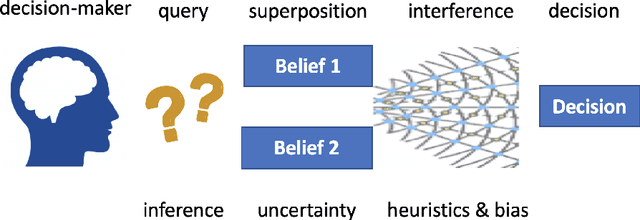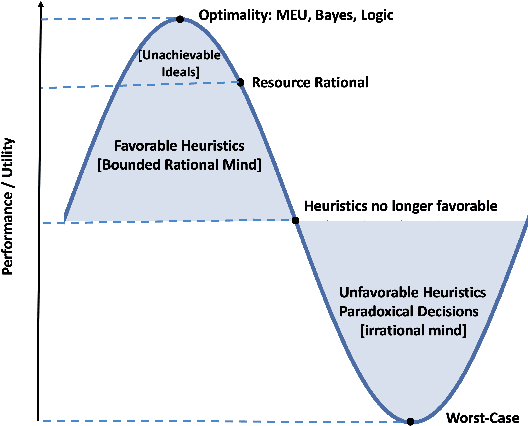Rasim Serdar Kurdoglu
QuLBIT: Quantum-Like Bayesian Inference Technologies for Cognition and Decision
May 30, 2020



Abstract:This paper provides the foundations of a unified cognitive decision-making framework (QulBIT) which is derived from quantum theory. The main advantage of this framework is that it can cater for paradoxical and irrational human decision making. Although quantum approaches for cognition have demonstrated advantages over classical probabilistic approaches and bounded rationality models, they still lack explanatory power. To address this, we introduce a novel explanatory analysis of the decision-maker's belief space. This is achieved by exploiting quantum interference effects as a way of both quantifying and explaining the decision-maker's uncertainty. We detail the main modules of the unified framework, the explanatory analysis method, and illustrate their application in situations violating the Sure Thing Principle.
 Add to Chrome
Add to Chrome Add to Firefox
Add to Firefox Add to Edge
Add to Edge